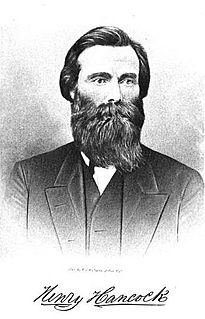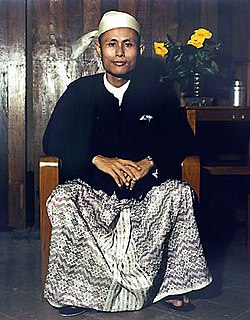A Quote by John Stuart Mill
... what is really inspiriting and ennobling in the doctrine of freewill, is the conviction that we have real power over the formation of our own character; that our will, by influencing some of our circumstances, can modify our future habits or capabilities of willing.
Related Quotes
There has been abroad many times some criticism of our Government, of our people, and our ways, but that has demonstrated, I think, that when they are in real trouble and real difficulty over there, they turn to us as a nation that will be fair with them--one in whose judgment and in whose character they can rely; and that not withstanding differences that have seemed to exist, they are willing to abide by the faith that they have in us, and I think that is a very substantial accomplishment.
I believe we have these capabilities. It doesn't mean that we will use them. Our future is not assured here. It's not clear that we will survive our own folly, but we have a rare opportunity to do that if we listen and see the messages that nature is showing at us right now, that the finiteness of our own resources and our own planet are showing us right now.
Education is 'the guardian genius of our democracy.' Nothing really means more to our future, not our military defenses, not our missiles or our bombers, not our production economy, not even our democratic system of government. For all of these are worthless if we lack the brain power to support and sustain them.
Our scientific power has outrun our spiritual power. We have guided missiles and misguided men. Our hope for creative living lies in our ability to reestablish the spiritual needs of our lives in personal character and social justice. Without this spiritual and moral reawakening we shall destroy ourselves in the misuse of our own instruments.
We are both burdened and blessed by the great responsibility of the will - the power of choice. Our future is determined, in large part, by the choices we make now. We cannot always control our circumstances, but we can and do choose our response to whatever arises. Reclaiming the power of choice, we find the courage to live fully in the world.
As Shantideva says, suffering has many good qualities because it purifies our negative karma, increases our renunciation and compassion, reduces our pride, and helps us to overcome our bad mental habits. If we think in this way we will feel that difficult circumstances are our best friends. When our mind is balanced in this way it becomes as stable as Mount Meru, and nothing can cause it to shake.
It is not true that the legislator has absolute power over our persons and property, since they pre-exist, and his work is only to secure them from injury. It is not true that the mission of the law is to regulate our consciences, our ideas, our will, our education, our sentiments, our works, our exchanges, our gifts, our enjoyments. Its mission is to prevent the rights of one from interfering with those of another, in any one of these things.









































